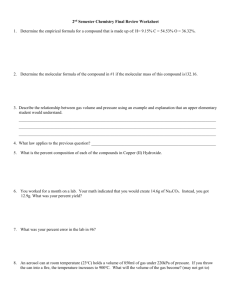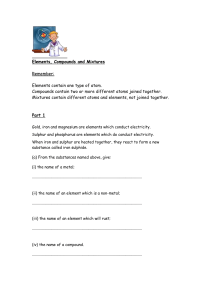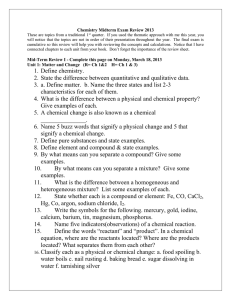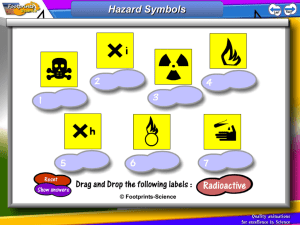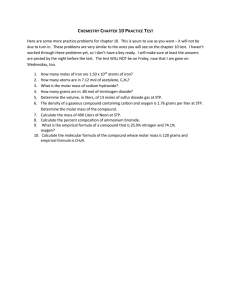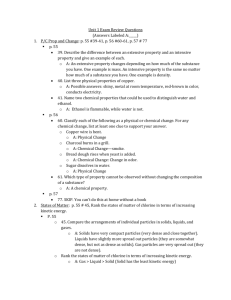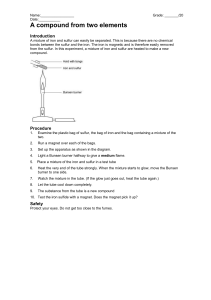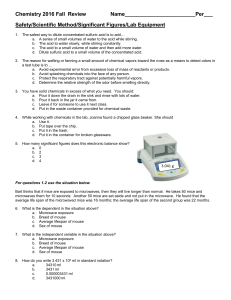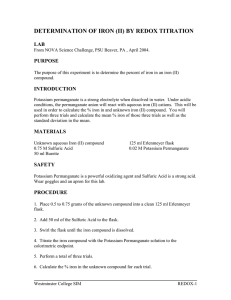Chemistry 1st Semester review
advertisement
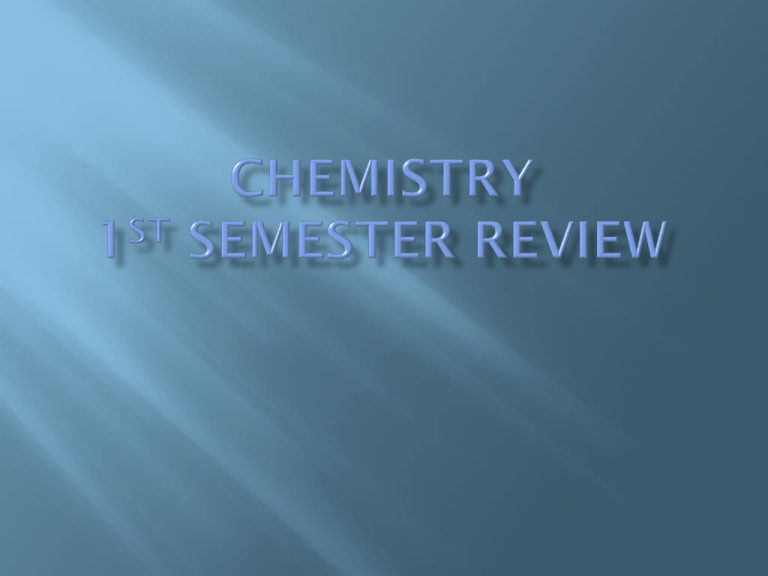
What do you call the following phase changes? Solid to a liquid Liquid to a solid Liquid to a gas Gas to a liquid Solid to a gas Gas to a solid Give an example of a physical change. Give an example of a chemical change. Which one of these changes represents water turning from a liquid to a vapor? What about bread rising? Give an example of a heterogeneous mixture. Give an example of a homogeneous mixture. Give an example of something that represents a mixture. Give an example of something that represents an element. Give an example of something that represents a pure substance. Give an example of something that represents a compound. Iron, element number 26 has an atomic mass of 55.85 amu. How many protons does iron have? In its elemental state, how many electrons does it have? How many neutrons? If iron reacts with another element, what ion can it form? What is the difference between a hypothesis, a theory and a law? Give an example of a theory. Give an example of a law. Based on what is a theory considered valid? Know what Rutherford and Bohr contributed to atomic theory. Give an example of a state of matter that would have low kinetic energy and high density. (solid, liquid, gas, plasma) What is a group/family? Name the groups of the periodic table. What are the SI units for: Length Mass Volume Time Weight Know the rules for: Addition/subtraction Multiplication/division What is the molar mass of potassium chloride? What is the percent of carbon by mass in the compound iron (II) carbonate? What is the empirical formula of a compound that is 78.1%B and 21.9%H? The molar mass of a compound is 92 g/mol. Analysis of a sample of the compound indicates that it contains 0.606 g N and 1.390 g O. Find its molecular formula. Name four things that indicate a chemical reaction has taken place. When magnesium is burned in the presence of oxygen it bursts into bright white light and forms a magnesium oxide. Write the balanced chemical equation for this reaction and include phase notation and type of reaction. Label which part represents the reactants and which represents the products. Be able to identify the following reactions: Single replacement Double replacement Acid-Base (Neutralization) Combustion Synthesis Decomposition What type of ions do transition metals tend to form? Know how to name formulas and write them. What is a derived formula? The density of gold is 19.3 grams per cubic centimeter. Calculate the mass of a block of gold that measures 10cm x 15mm x 2.5 cm. What mass of iron has the same number of atoms as 100.03 grams of iodine? What is the percent composition of lead (IV) nitrate? Pb: ________% N: _______% O: _______%
